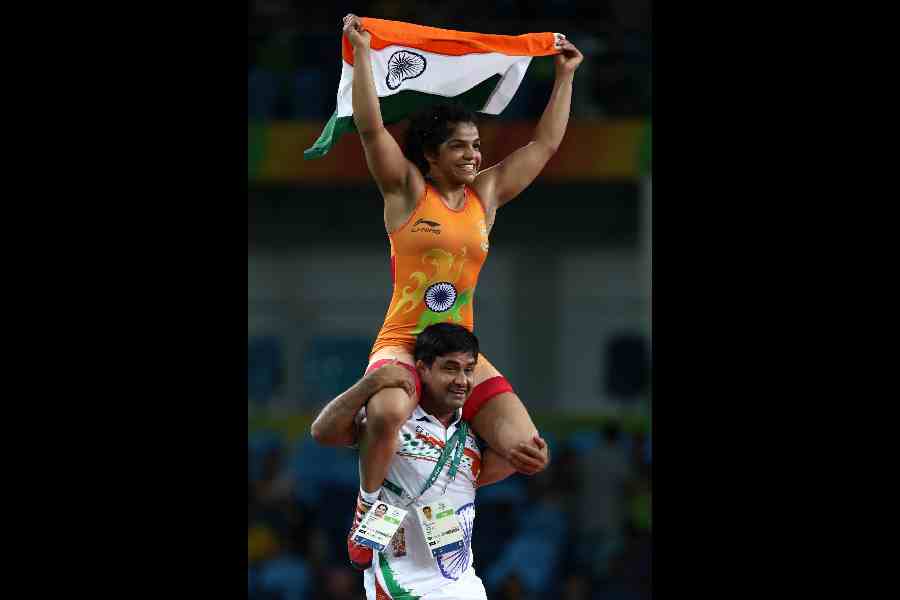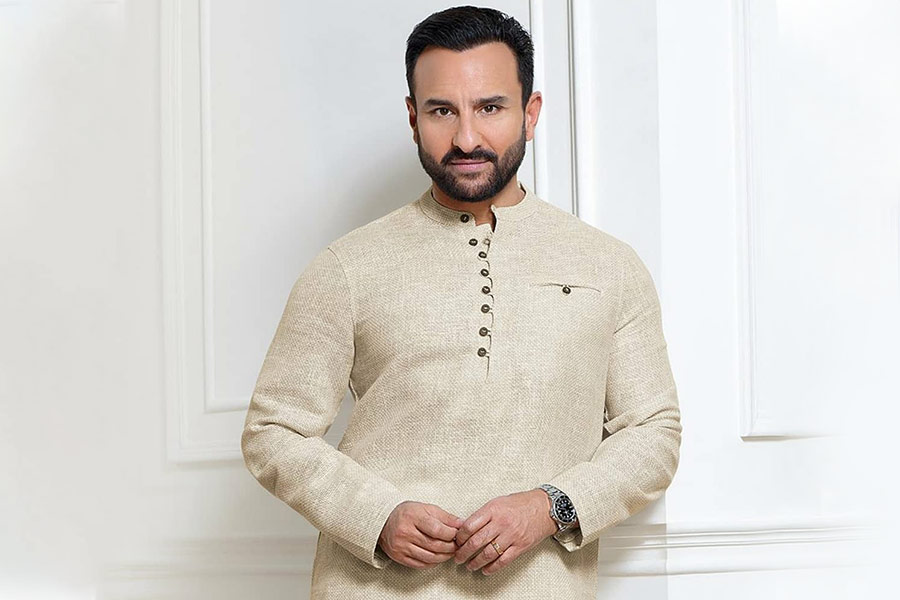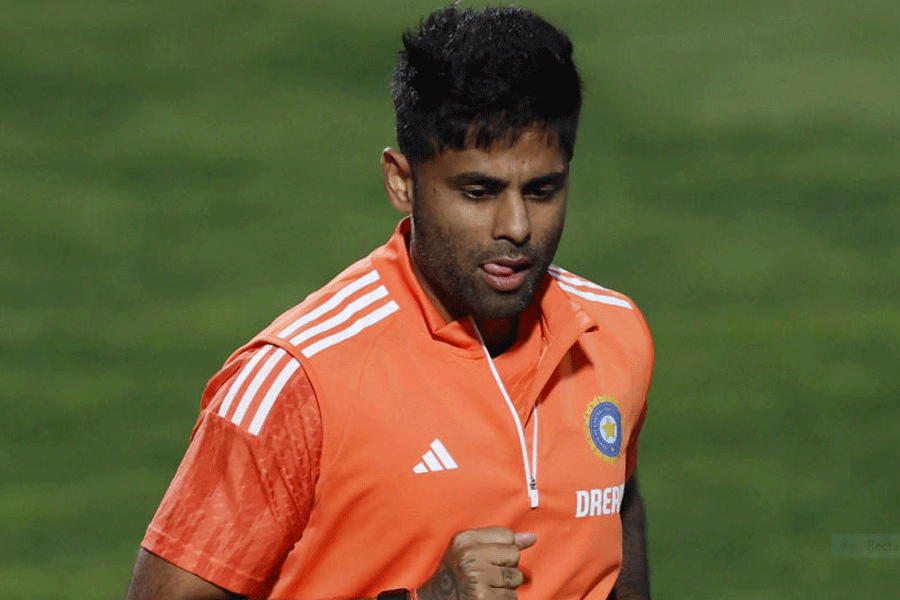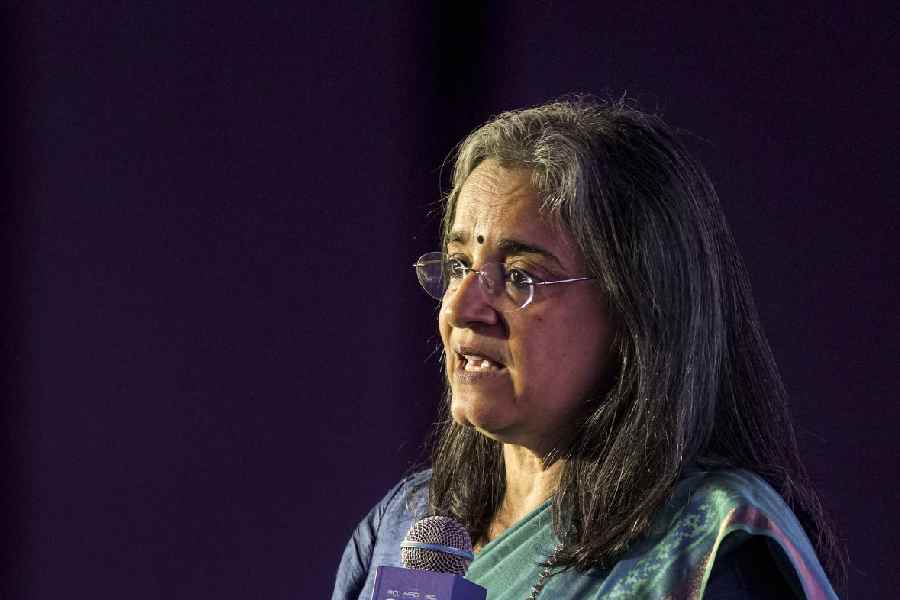Whenever Brij Bhushan Sharan Singh came to watch a tournament or a selection trial, or if I had to compete at Nandini Nagar in front of him, I would try my best to avoid being noticed by him. That was impossible of course, because I was one of the best wrestlers in the country.
I had no option but to do well. And when I did, I had to meet him. For many years this thought was always stuck in my head — did he remember that day in his room at Almaty and what he had tried to force me into? Would he try to take revenge against me, somehow?
I tried to guard myself in every way I could. I made it a point to travel with someone from the family for the domestic competitions. I couldn’t be by myself. I understood finally why the parents of so many female competitors make it a point to stay outside the national camp, somewhere close by. I’d try to pretend I was fine. But I could never chase away those feelings of fear and anxiety. It was many years later that I was finally able to interact normally with Brij Bhushan.
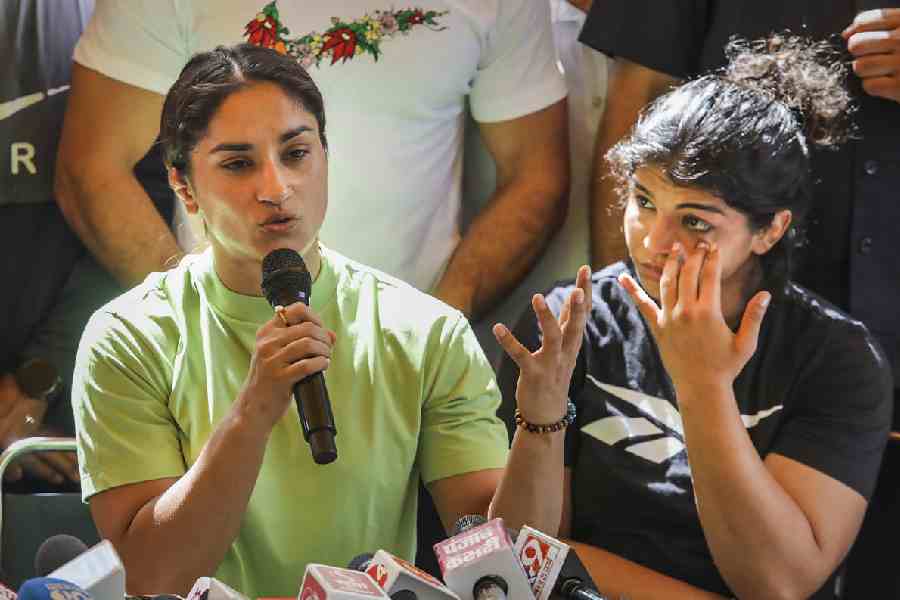
Wrestlers Vinesh Phogat and Sakshi Malik speak with the media during the their protest against Wrestling Federation of India (WFI) chief Brij Bhushan Sharan Singh, at Jantar Mantar in New Delhi, Monday, May 15, 2023. PTI
Although I regret not having spoken up earlier, I’m glad that I was able to at least tell many girls and my parents about what had happened. I am grateful that I didn’t blame myself for what happened. I had been molested in my childhood too, but for a long time I could not tell my family about it because I thought it was my fault. My tuition teacher from my school days used to harass me. He would call me over to his place for classes at odd times and sometimes tried to touch me. I was scared to go for my tuition classes but I could never tell my mom. This continued for a long time and I kept quiet about it.
Finally, one Sunday, he crossed all limits. I was terrified. I didn’t know what to do. I thought my parents would hit me because I thought that this was somehow my fault.
When I finally told my mother, she called up one of her friends whose daughter also went to the same teacher for tuitions. This girl was older than me. My mother’s friend asked her daughter if anything like this had happened with her at the teacher’s and she said no. At that point my mother didn’t know whether to believe me or not, so she asked if I would go for my tuition class the next day. I was in tears and said I wasn’t going back to him, whatever may happen. My mother withdrew me from that class. My mother completely supported me at the time. She told me to go for the class the next day and that she would follow me a minute later and ‘show him’. She meant that she would slap him and hit him. I wasn’t agreeable to that. I told her she could go to his place and beat him up, but I could not face him again.

BJP MP Brij Bhushan Sharan Singh leaves after the first day of Monsoon session of Parliament, in New Delhi, Thursday, July 20, 2023. PTI
Even though I wanted nothing to do with that teacher, it was impossible to simply forget about the incident as I had to often pass by the lane where he lived. It took me many years to overcome the disgust and guilt I felt at what had happened.
What American wrestlers would call ‘making weight’ we called wazan todna, literally ‘breaking weight’, in India. And that was exactly what it was. It actually felt as if we were breaking our bodies each time we tried to enter at the right weight for a competition.
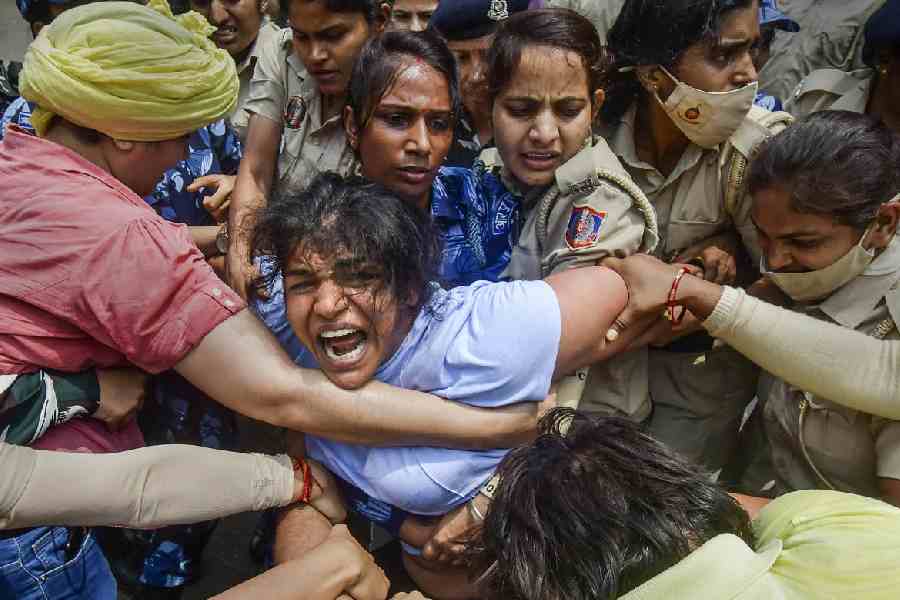
Security personnel detain wrestler Sakshi Malik during wrestlers' protest march towards new Parliament building, in New Delhi, Sunday, May 28, 2023. PTI
Losing 5 or 6 kg over a week is hard enough for a normal person. But as wrestlers we are already very lean. If you measure the fat in our bodies, it will constitute around 19–20 per cent of our body weight, which is already very low compared with the fat ratio in normal women. When you have to lose so much weight in a short period of time, you will normally be losing water weight.
Losing weight is a very precise process. I’d usually have very specific targets in the weeks before a competition. I knew that after a particularly rigorous workout session I might lose perhaps 1.5 kg of water. That didn’t of course mean I’d be 1.5 kg lighter the next day. I still had to eat and drink something so I could have enough energy to continue to train the next day.
Even if I ate some fruits and drank just a bare minimum amount of water, I’d still wind up recovering about 1 kg of my lost weight. So, even if I was really careful, I might lose only about 400 g of body weight each day. The next day I’d repeat the process. This would go on right until the day of my weigh-in.
Each day of the weight cut gets steadily harder than the previous one since, by the very end, your body is completely parched. There just isn’t any more water to squeeze out. The last night before the weigh-in is always the hardest. We were always on the edge of dehydration by that time. That’s the reason we couldn’t always stay at the exact weigh-in weight over the course of the season. Weight cutting is a very unhealthy activity. As a wrestler, I wanted to be in that zone of dehydration for as little time as I needed to be.
On that penultimate day before the weigh-in, I’d be constantly standing on an electronic weighing scales that the team carried along. We might forget to take our clothes with us, but we never forget those scales. Ever so often, I’d hit a plateau. Everything would be going smoothly, and then I’d measure my weight and see I was stuck at 100 g short of where I needed to be. At that point I’d start to run in place, or go into the sauna and work out.
You are almost in a state of frenzy at this point, when you have brought your food and water intake to the bare minimum. This was a starvation diet, but you were constantly training through it all. For those last five days, every hour would feel as long as a day. That last day would never seem to end. You are on an empty stomach, your throat is dry and your body parched. It’s impossible to sleep because you are so stressed. You keep wishing for the morning to arrive quickly, so you can have your weight taken and finally get something to drink and eat.
I’d obsess over what went into my body, almost to the gram. I’d usually have a target of a maximum of 300 g of food and drink every day in the last few days leading up to the weigh-in. That meant maybe a couple of pieces of fruit and vegetables, a piece of chicken and maybe a little fruit juice. But sometimes, if you are careless or you aren’t thinking clearly, you might eat an extra piece of fruit by accident. Then for the next hour I’d curse myself for how foolish I was. ‘Why did you eat that extra piece? That’s a hundred grams extra. How do you lose that?’ I’d berate myself.
You really crave water like nothing else. I’d start fantasizing about drinking water, perhaps with glucose in it. Sometimes, if the craving became too hard, I’d take sips of water, up to 50 ml, and then curse myself as I ran to the machine to see how much damage I had done. If I saw I was a few grams heavier than target, I’d be filled with self-loathing. ‘Oh shit, my weight has gone up so much, now I can’t drink anything for another three hours.’ Then, three hours later, I’d mount the scales once again, just to confirm that my weight had not gone up any further. I’d start praying to that machine as the digits flashed on the screen, ‘Please don’t go up!’
Most wrestlers have a few secrets to get to the correct weight on weigh-in day. These tips are passed on by the seniors to their juniors, should matters get desperate. Usually, the weight of a wrestling costume is about 200 g, which meant that if I was competing in the 58 kg category, I actually had to weigh 57.800 kg with nothing on. But sometimes, the machine would show 57.850 kg, so I knew that with the costume, I’d weigh over the limit. Try as I might, even after an hour of weight training and running in place, the number still wouldn’t budge.
Published with permission from Sakshi Malik’s memoir 'Witness' by Juggernaut Books

